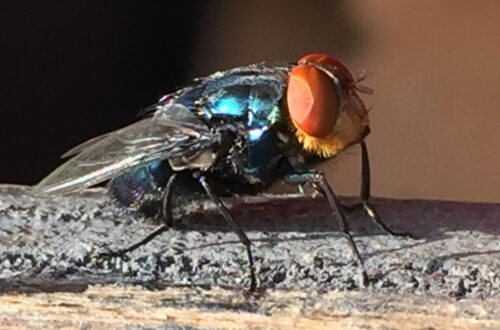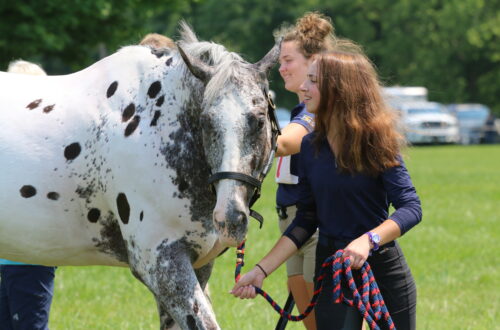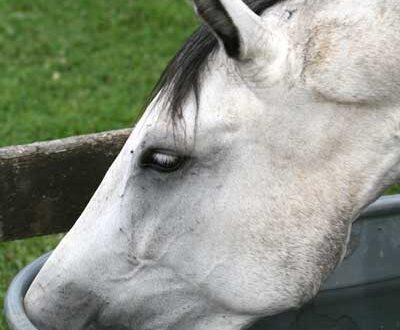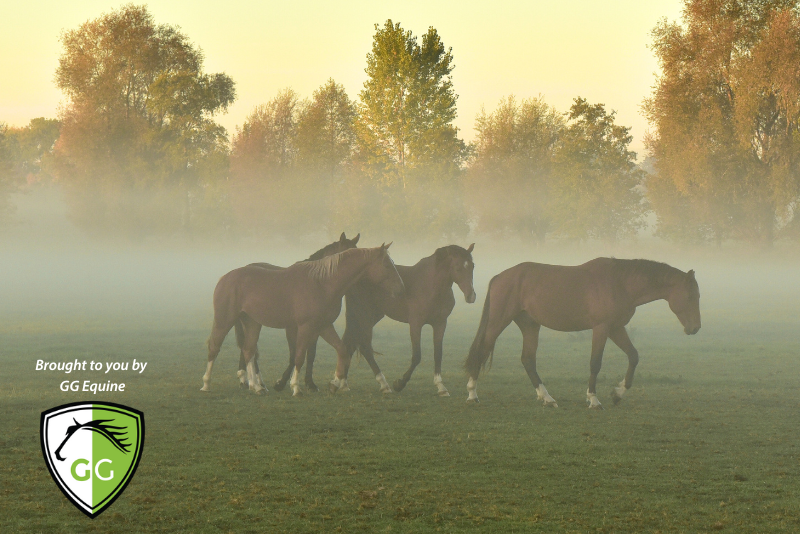
Caring for Pasture-Kept Horses
By Meg Finn, USPC Instruction and Testing Coordinator; Brought to you by GG Equine
Picture a herd of pastured horses. Imagine rolling green hills dotted by a colorful array of equines peacefully grazing. While in some parts of America, lush green pastures dominate the landscape, highly populated cities will find horsekeeping setups with less open space, where grazing and turnout options may be limited or unavailable. Each area of the country has a different climate and different ways of keeping horses, along with their own unique challenges. Whether your horse lives outside full-time or is turned out daily, time out in the pasture provides mental and physical benefits.
Keeping your horse safe is a top priority. The pasture or paddock should have safe, sturdy fencing and appropriate shelter where a horse can take respite from the wind, rain, sun, and snow. However, it’s not just as easy as turning him loose to fend for himself; he still requires care and has daily needs that must be met.
Nutrition Needs
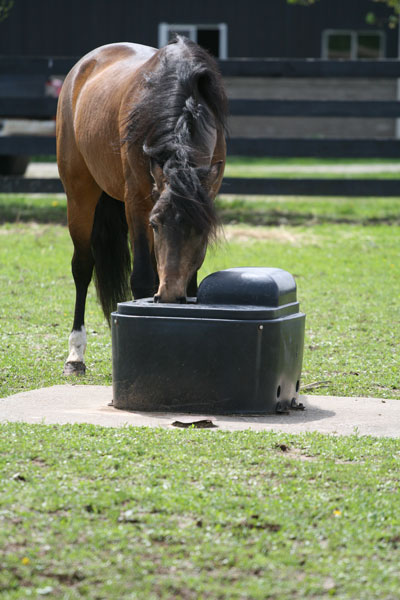
Living in a pasture is a very natural way of life for a horse, but when it comes to nutrition, a pasture is only as good as the forage it produces. While there may be plenty of grass for your horse to graze on in the spring, the same may not be true in the cold winter months or in the hot dry summer. Depending on the type and quality of grass, the size of the pasture, geographical location, climate, and number of horses, you may need to give your horse extra feed in the form of hay, grain, or a combination of both.
Feeding in a pasture can present its own set of challenges. While it’s always best to keep horses together whose feeding requirements and personalities are well matched, this isn’t always possible. Be sure to space out feed buckets or hay piles to help prevent squabbles, and pay attention to your horse’s overall condition so you’re able to adjust his feed accordingly. It can be difficult when feeding horses in a herd to ensure that each horse is getting enough, or in some cases, not too much feed. Ponies, horses with metabolic conditions, and those susceptible to laminitis may need to wear a grazing muzzle. A grazing muzzle doesn’t prevent your horse from eating, but it slows him down and helps regulate grass intake.
Hydration for Horses
Did you know the average horse drinks eight to 12 gallons of water a day? Whether living inside or outside, horses need access to a constant supply of clean fresh water. In a pasture, this often comes in the form of a trough, which will require regular scrubbing to keep it free from debris and algae. If your horse has access to an automatic waterer, check it regularly to ensure it’s working as it should. Proper hydration plays a vital role in digestion, as well as helps your horse to regulate his body temperature.
Grooming Pasture-Kept Horses
There are pros and cons to keeping horses in a stall or out in a pasture. You always know where your stabled horse will be. If your horse is pastured, you may need to give yourself more time when planning to go for a ride, especially if he’s hard to catch! He may need a good grooming to clean off any mud, or extra time to dry if he’s been out in the rain. Time spent grooming is always time well spent.
Grooming plays an important role in our relationship with our horses, physically and mentally. Regular grooming allows us to quickly note cuts or bumps, check overall body condition, and observe any behavioral changes. Is your horse’s back sore when you touch it? Does he shy away when you go near his face? Does he pin his ears, swish his tail, or stomp his feet with no obvious reason? Always consult your veterinarian if you have questions or concerns about your horse’s health.
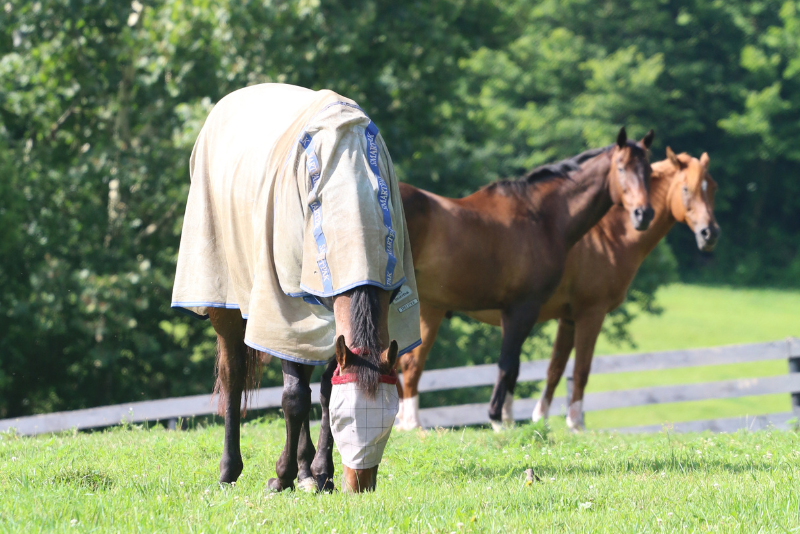
Elizabeth Moyer Photo
Seasonal Care for Pastured Horses
A pastured horse may need more than just his natural coat to help protect him against the elements. If you live in a damp climate, you may want to invest in a waterproof sheet or blanket. A blanket can offer extra warmth, keep your horse clean, and help to prevent conditions such as rain rot, a bacterial skin condition. In addition, blankets may need to be changed or taken off as the temperature changes throughout the day. Don’t forget to frequently check straps as horses can become tangled.
In the summer, a fly sheet, fly mask, and/or fly boots offer protection from biting insects and the sun’s ultraviolet rays. While a horse’s coat offers some defense against the summer sun, pink skin can easily get sunburned. Zinc oxide sunscreens are perfect for noses! You may need to take additional measures to keep flies from pestering your horses, such as regular application of a long-lasting fly spray.
Benefits of Pasture Turnout
With all of the management that may come with keeping a pastured horse, there are many benefits to keeping horses at pasture. Time spent outside allows your horse to experience a more natural environment. It gives these social animals an opportunity to interact with one another. The freedom to move, graze, and participate in a herd dynamic keeps your horse mentally stimulated and reduces the risk of boredom and isolation, which can lead to destructive behaviors. You may find your horse is happier living outside, but it may also mean you spend more time looking for lost shoes or hunting for the new fly mask your horse’s pasture mate has just pulled off.
Whether stabled or living out, there are pros and cons to every situation. Pastured horses must be checked at least once a day, ensuring that they are safe, comfortable, and have access to food and water. Keeping and caring for horses is a labor of love. It requires time and dedication, but as the saying goes, “There is something about the outside of a horse that is good for the inside of a man.”

GG Equine believes in slow feed solutions that work with your horse—not against them. From better posture with our HayPlay Bags to natural grazing behavior with our low-stress GreenGuard Muzzles, we help you support your horse’s wellness from the ground up.
For more information, visit gg-equine.com




